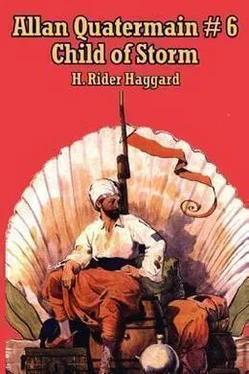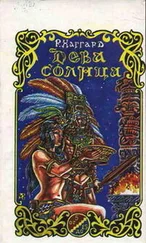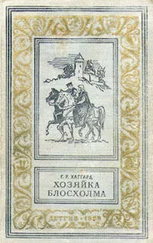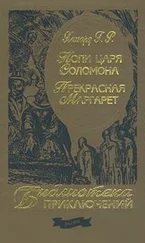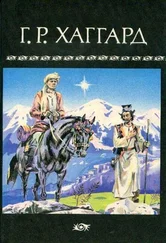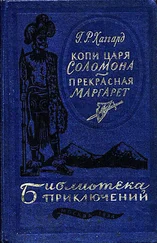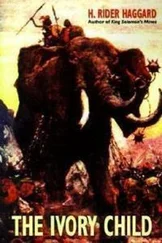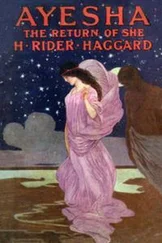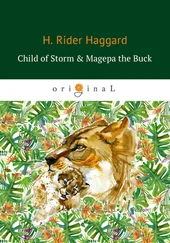It was from Mr. Fynney that I heard the story of the execution by Cetewayo of the man who appeared before him with the ornaments of Umbelazi, announcing that he had killed the prince with his own hand. Of course, this tale, as Mr. Quatermain points out, bears a striking resemblance to that recorded in the Old Testament in connection with the death of King Saul.
It by no means follows, however, that it is therefore apocryphal; indeed, Mr. Fynney assured me that it was quite true, although, if he gave me his authorities, I cannot remember them after a lapse of more than thirty years.
The exact circumstances of Umbelazi's death are unknown, but the general report was that he died, not by the assegais of the Usutu, but of a broken heart. Another story declares that he was drowned. His body was never found, and it is therefore probable that it sank in the Tugela, as is suggested in the following pages.
I have only to add that it is quite in accordance with Zulu beliefs that a man should be haunted by the ghost of one whom he has murdered or betrayed, or, to be more accurate, that the spirit ("umoya") should enter into the slayer and drive him mad. Or, in such a case, that spirit might bring misfortune upon him, his family, or his tribe.
H. RIDER HAGGARD.
Chapter I
Allan Quatermain Hears of Mameena
We white people think that we know everything. For instance, we think that we understand human nature. And so we do, as human nature appears to us, with all its trappings and accessories seen dimly through the glass of our conventions, leaving out those aspects of it which we have forgotten or do not think it polite to mention. But I, Allan Quatermain, reflecting upon these matters in my ignorant and uneducated fashion, have always held that no one really understands human nature who has not studied it in the rough. Well, that is the aspect of it with which I have been best acquainted.
For most of the years of my life I have handled the raw material, the virgin ore, not the finished ornament that is smelted out of it—if, indeed, it is finished yet, which I greatly doubt. I dare say that a time may come when the perfected generations—if Civilisation, as we understand it, really has a future and any such should be allowed to enjoy their hour on the World—will look back to us as crude, half–developed creatures whose only merit was that we handed on the flame of life.
Maybe, maybe, for everything goes by comparison; and at one end of the ladder is the ape–man, and at the other, as we hope, the angel. No, not the angel; he belongs to a different sphere, but that last expression of humanity upon which I will not speculate. While man is man—that is, before he suffers the magical death–change into spirit, if such should be his destiny—well, he will remain man. I mean that the same passions will sway him; he will aim at the same ambitions; he will know the same joys and be oppressed by the same fears, whether he lives in a Kafir hut or in a golden palace; whether he walks upon his two feet or, as for aught I know he may do one day, flies through the air. This is certain: that in the flesh he can never escape from our atmosphere, and while he breathes it, in the main with some variations prescribed by climate, local law and religion, he will do much as his forefathers did for countless ages.
That is why I have always found the savage so interesting, for in him, nakedly and forcibly expressed, we see those eternal principles which direct our human destiny.
To descend from these generalities, that is why also I, who hate writing, have thought it worth while, at the cost of some labour to myself, to occupy my leisure in what to me is a strange land—for although I was born in England, it is not my country—in setting down various experiences of my life that do, in my opinion, interpret this our universal nature. I dare say that no one will ever read them; still, perhaps they are worthy of record, and who knows? In days to come they may fall into the hands of others and prove of value. At any rate, they are true stories of interesting peoples, who, if they should survive in the savage competition of the nations, probably are doomed to undergo great changes. Therefore I tell of them before they began to change.
Now, although I take it out of its strict chronological order, the first of these histories that I wish to preserve is in the main that of an extremely beautiful woman—with the exception of a certain Nada, called "the Lily," of whom I hope to speak some day, I think the most beautiful that ever lived among the Zulus. Also she was, I think, the most able, the most wicked, and the most ambitious. Her attractive name—for it was very attractive as the Zulus said it, especially those of them who were in love with her—was Mameena, daughter of Umbezi. Her other name was Child of Storm (Ingane–ye–Sipepo, or, more freely and shortly, O–we–Zulu), but the word "Ma–mee–na" had its origin in the sound of the wind that wailed about the hut when she was born. [2] The Zulu word "Meena"—or more correctly "Mina"—means "Come here," and would therefore be a name not unsuitable to one of the heroine's proclivities; but Mr. Quatermain does not seem to accept this interpretation.—EDITOR.
Since I have been settled in England I have read—of course in a translation—the story of Helen of Troy, as told by the Greek poet, Homer. Well, Mameena reminds me very much of Helen, or, rather, Helen reminds me of Mameena. At any rate, there was this in common between them, although one of them was black, or, rather, copper–coloured, and the other white—they both were lovely; moreover, they both were faithless, and brought men by hundreds to their deaths. There, perhaps, the resemblance ends, since Mameena had much more fire and grit than Helen could boast, who, unless Homer misrepresents her, must have been but a poor thing after all. Beauty Itself, which those old rascals of Greek gods made use of to bait their snares set for the lives and honour of men, such was Helen, no more; that is, as I understand her, who have not had the advantage of a classical education. Now, Mameena, although she was superstitious—a common weakness of great minds—acknowledging no gods in particular, as we understand them, set her own snares, with varying success but a very definite object, namely, that of becoming the first woman in the world as she knew it—the stormy, bloodstained world of the Zulus.
But the reader shall judge for himself, if ever such a person should chance to cast his eye upon this history.
It was in the year 1854 that I first met Mameena, and my acquaintance with her continued off and on until 1856, when it came to an end in a fashion that shall be told after the fearful battle of the Tugela in which Umbelazi, Panda's son and Cetewayo's brother—who, to his sorrow, had also met Mameena—lost his life. I was still a youngish man in those days, although I had already buried my second wife, as I have told elsewhere, after our brief but happy time of marriage.
Leaving my boy in charge of some kind people in Durban, I started into "the Zulu"—a land with which I had already become well acquainted as a youth, there to carry on my wild life of trading and hunting.
For the trading I never cared much, as may be guessed from the little that ever I made out of it, the art of traffic being in truth repugnant to me. But hunting was always the breath of my nostrils—not that I am fond of killing creatures, for any humane man soon wearies of slaughter. No, it is the excitement of sport, which, before breechloaders came in, was acute enough, I can assure you; the lonely existence in wild places, often with only the sun and the stars for companions; the continual adventures; the strange tribes with whom I came in contact; in short, the change, the danger, the hope always of finding something great and new, that attracted and still attracts me, even now when I have found the great and the new. There, I must not go on writing like this, or I shall throw down my pen and book a passage for Africa, and incidentally to the next world, no doubt—that world of the great and new!
Читать дальше
Конец ознакомительного отрывка
Купить книгу
